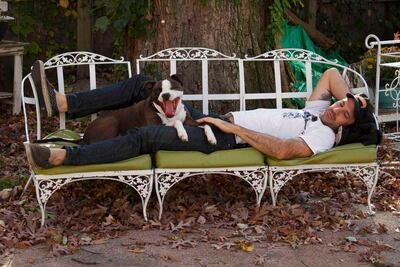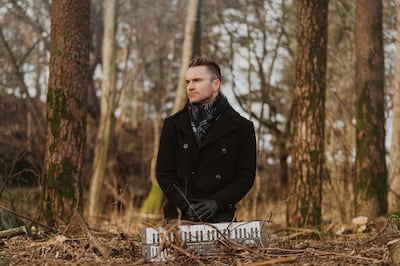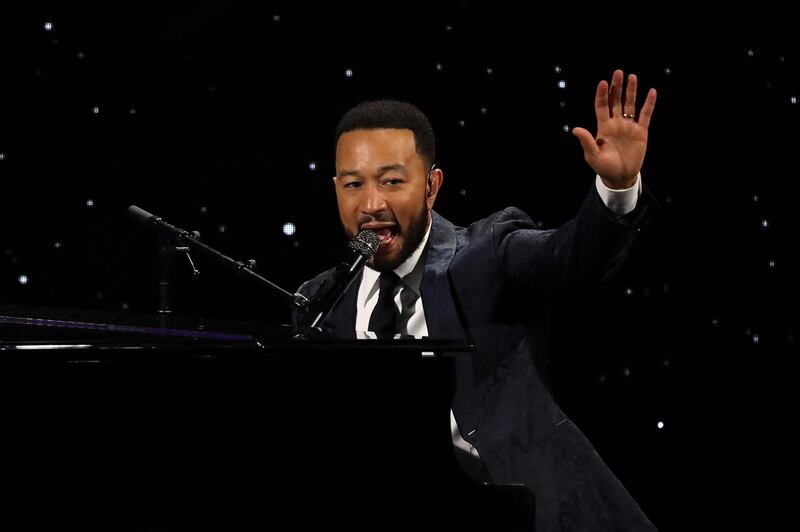It might be the least smooth entrance of John Legend’s career. “I’ve never done this on my phone before,” admits the soulful crooner, as he presses record and his slightly flustered face fills the screen. Such is pop star life in the time of Covid-19.
Legend’s low-key concert – streamed live on Instagram late last month and still available online – supported the worthy new campaign #TogetherAtHome, in which live-streaming stars encourage people to also stay in and stay safe.
The All of Me singer's improvised, interactive show also featured his wife Chrissy Teigen and daughter Luna: good famous-family fun. But some YouTube comments were less jolly.
Are celebrity musical concerts creative or tactless?
“No time for these fake 2,” wrote one disgruntled viewer, while others declared that Teigen needed to be the “centre of attention” and that Legend is “a sell-out”.
That seemed oddly harsh, but naysayers will need to get attuned to family-interrupted concerts as the global lockdown continues. A diverse selection of homespun performances has been uploaded in recent weeks, and it’s spreading, although those performances will invariably divide opinion. Broadcasting from a huge, luxurious living room can seem tactlessly egotistical right now.

Cult US singer-songwriter Mishka Shubaly is one sceptical onlooker. “It’s funny, as all this was unfolding, I was like: ‘Here it comes, who’s going to be the first rock star to try to turn this global tragedy into a way to ... oh, hello Bono.’”
U2’s frontman was an early entry on to the viral stage, performing a quickly written song for coronavirus-stricken Italy.
Shubaly, meanwhile, has turned home performances into a highly personal, positive experience. He usually makes a living touring the US and Europe, so the virus shutdown has hit him particularly hard. “I think I’ll be out around $10,000 [Dh36,725] in fees and merchandise sales,” he says.
$100 for a virtual, one-on-one concert
The gruff, gritty singer had already found a novel outlet during the Christmas holidays, however, making personalised songs as gifts (“I love how it’s kind of anti-consumerist, you can’t buy that on Amazon”), and now he’s turning to gigs.
“I want to work for my money. So I came up with the idea of doing live, one-on-one streaming shows for fans. For $100, I’ll perform for an hour. You can pick the set list out of any of my songs, I can teach you how to play my songs, we can jam on them together, you can interrogate me about how or why I wrote them. Hell, you can just cry to me about how you got dumped recently.” Shubaly has also offered to play free songs for fans suffering from Covid-19.
Many other stay-home musicians are also using their time well. Hozier, BTS and Courtney Barnett are among the acts streaming live for various charities, while American singer-songwriter Jewel’s at-home version of her annual children’s benefit concert was drolly retitled: Live from San Quarantine.
The multi-performer affair: recipe for virtual disaster?
Sometimes the show does go on; classically trained singer and comedian Sooz Kempner already uses fake Skype calls in her live gigs: the "callers" are actually pre-filmed clips of Kempner in character, whom she cleverly duets with. Now, a London cabaret night, Saturday Supershow, is trying that for real: two performers, one pianist, all in separate houses.
“It’s very complicated and I’m glad I’m not in charge of the streaming,” says Kempner. “Through the magic of webcams and mics we’ll hopefully be able to sing solos and duets, all professionally mixed at the other end by the producer.” These cabaret shows are free, with an option to “tip” the artists afterwards. But will remote duets work?
“It could go in many directions,” Kempner admits. “Will I just be pixelated, emitting bleeps and blips to a baffled global audience?”
Multi-performer affairs can backfire, after all. Gal Gadot's star-studded version of John Lennon's Imagine was widely mocked, albeit well intentioned, and social distancing is conjuring innovative projects – popular Melbourne punk trio Camp Cope are coping with no live shows through virtual gigging.
“There’s been two weekends of full-day festivals here, via Instagram, which has been really nice, just something to bring a few people together,” says drummer Sarah Thompson.
One event, organised by US musician Erica Freas and UK label Specialist Subject, was a logistically challenging transcontinental affair – with bands from the UK, US and Australia logging on and plugging in. Again, that fest was free, and more about keeping bands and fans together in troubled times, with viewers directed to the performers’ websites and shops.
“It definitely feels weird playing to ‘no one’ even though you’re kind of playing to heaps of people,” Thompson says, but it’s “nice to feel like we were hanging out again from afar. It’s definitely been good for a lot of people’s mental health, I think.”
The challenges of a home concert
Many home shows would be worth catching anyway. Death Cab for Cutie’s Ben Gibbard and Christine and the Queens’ Heloise Letissier have streamed regularly, with the latter swaying around the studio and the former strumming at home. And electronica troubadour James Blake did a particularly likeable Legend-like session, covering Radiohead and Billie Eilish, over Instagram. “Thank you to the 27k people who joined the little concert from our piano,” tweeted Jameela Jamil, Blake’s partner and occasional heckler.

Proper full-length concerts can take some planning. Norwegian pianist Lars Jakob Rudjord recently released a gorgeous album with an apt title, Let Tomorrow Be Better. Unable to stage a live launch party, he streamed one from his lounge.
House concerts offer different challenges, “especially when you have to be quiet ‘backstage’ so you don’t wake your kids”, Rudjord ruefully recalls. He spent a week practising the songs and technology, but still suffered sound issues early on. Not that he realised.
“My wife was practically jumping up and down behind the glass door,” he says, with a laugh. An awkwardly placed microphone meant the usually classy musician then “had to lean over the grand piano, like a complete dork”.
That show eventually proved rather successful, however, with a much wider reach than a regular gig. He plans more soon – but will introduce the songs in English.
“The kind of community that arises from these live-stream concerts is supercool,” Rudjord says. “I had fans from all over the world watching, more than expected – they didn’t catch a word of my Norwegian. And also pals from my schooldays, family members, neighbours.
“I think the way artists started doing online shows will have an impact on the music industry that will also last after the coronavirus crisis is over. Hopefully new good things will come out of this.”
Played well, such shows can spread good vibes, and an important message. Going viral was never so vital.






